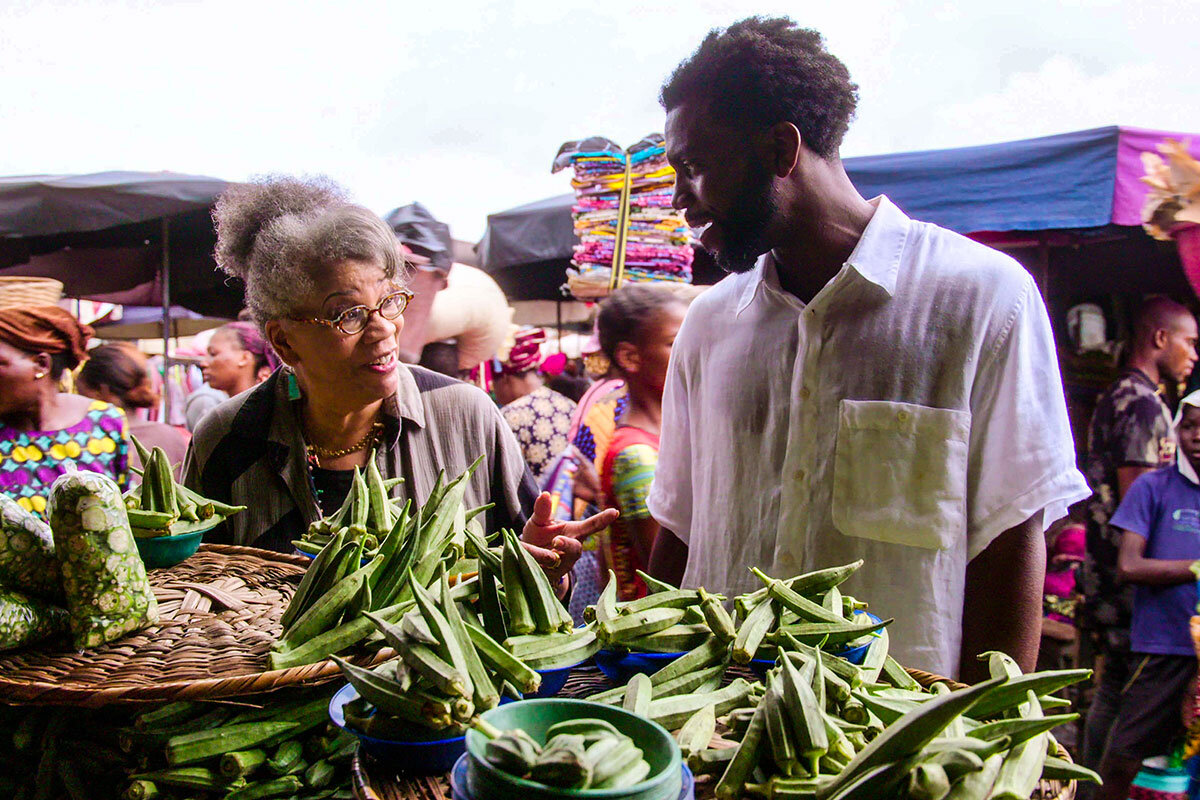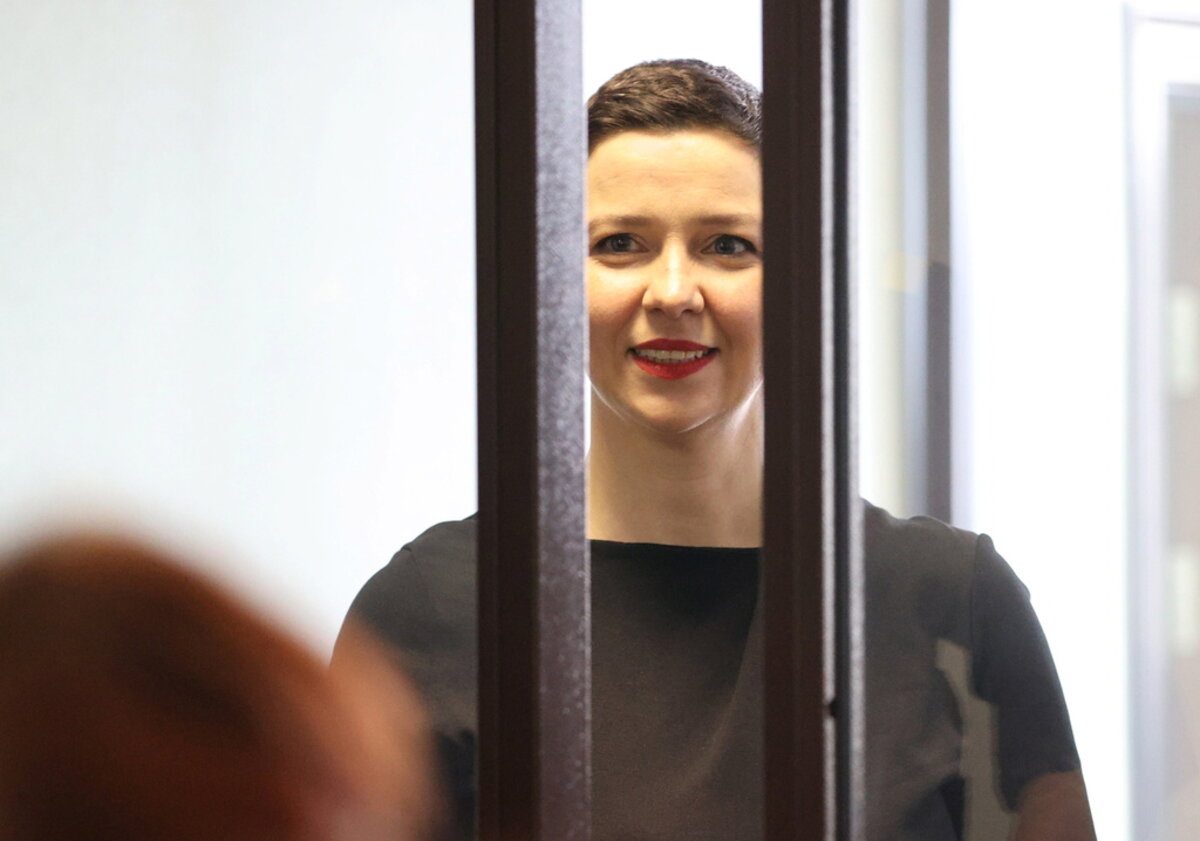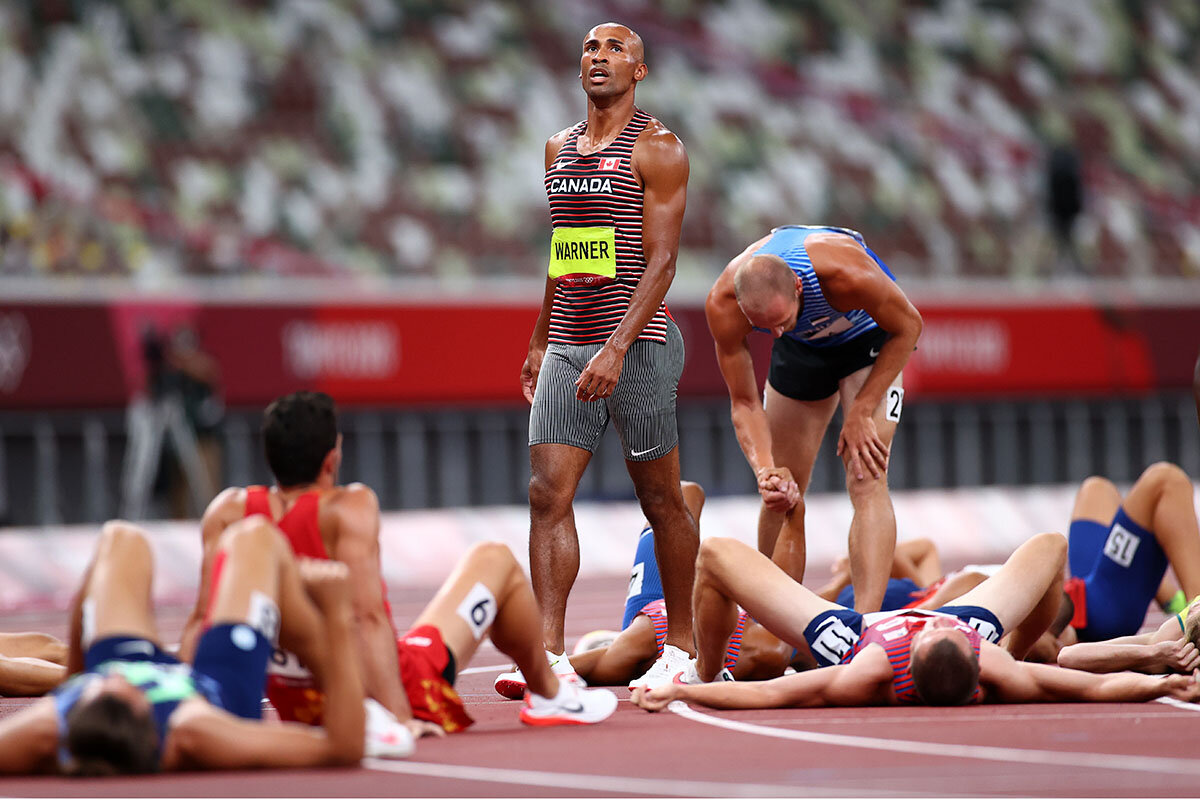It’s hard to imagine a more joyful and fearless pro-democracy activist in the world than Maria Kalesnikava. On Wednesday, this brave woman entered a closed courtroom in Belarus, a country at the center of Europe and the focus of its struggle against autocracy, and did a short dance with a smile before the start of her trial. From inside a prisoner cage, she also made a heart with her fingers for reporters.
And this happy display came after she had spent 11 months in near-solitary confinement for helping organize mass protests last year against a ruthless dictator, Alexander Lukashenko, in a former Soviet state the size of Kansas.
Her dance helped show to the world where the real fear in Belarus lies.
“The authorities are terrified of an open trial, where everyone will see that, in fact, the authorities themselves are the main danger,” she told Russian outlet TV Rain.
When she speaks to her jailers and other authorities, she said, one of her rules is to laugh a lot. “Freedom is worth fighting for. Do not be afraid to be free,” she wrote in a message to her fellow citizens from jail last year.
Last September, she had an opportunity to be physically free when security officers took her to the border and tried to exile her. Instead, she ripped up her passport and ran back into Belarus, only to be arrested on bogus charges.
Her leadership, along with that of two other women who led the protests in 2020, has altered the thinking of Belarusians in ways that have not only shaken the regime in Minsk but also the autocrat next door, Vladimir Putin. He fears yet another democratic revolution in the states along Russia’s border.
“We have already won now,” Ms. Kalesnikava told the German newspaper Die Welt am Sonntag (The World on Sunday). “We have conquered our fear and our indifference. This is most important. It is very difficult to squeeze out the bondage, drop by drop – but it is necessary for us and for our future.”
“Freedom doesn’t just fall into your lap,” she said.
“All those who are prepared to fight for the right of people to determine their own future give us strength and are our allies. Belarus is not the only country that has not yet been able to build a democratic system. This is a global challenge. What does the future of humanity look like? That depends on all of us.”
During her time in jail, Ms. Kalesnikava takes joy in each day. “I know that life is beautiful,” said the trained flutist and music manager.
This theme of conquering fear is common among many Belarusians who have run up against the regime and made the mental leap from quiescence to quiet activism. (The protests have ended as result of some 35,000 people being arrested.)
“Every Belorusian is overcoming their fears right now,” says Sviatlana Tsikhanouskaya, the female presidential candidate who probably beat Mr. Lukashenko in a rigged election last August.
“Democracy has to be inside every person,” she told The New Yorker in December. “Imagine how difficult it is to make the transition from a state of obedience to thinking, ‘I’m responsible for my country.’”
The latest public figure to remind her people of the need for courage is Olympic runner Krystsina Tsimanouskaya. On Wednesday, she arrived in Poland after leaving Tokyo in a hurry to escape her government’s handlers. She had objected to a request by Belarusian sports officials to have her run in a race she had not trained for.
“I want to tell all Belarusians not to be afraid and, if they’re under pressure, speak out,” said the runner at a press conference. She didn’t do a dance. But she captured the spirit of the one by another dissident in a Minsk courtroom.
 Mark Sappenfield
Mark Sappenfield










